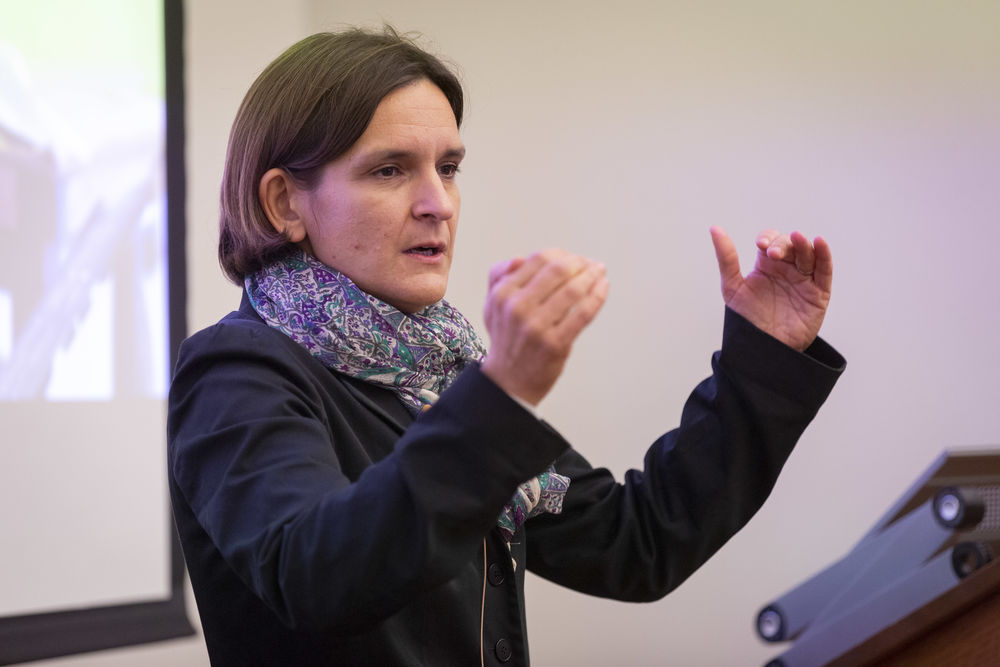Gruber Distinguished Lecturer in Global Justice: Esther Duflo

Esther Duflo, the Abdul Latif Jameel Professor of Poverty Alleviation and Development Economics at the Massachusetts Institute of Technology, delivered the 2018 Gruber Distinguished Lecture in Global Justice on October 22. Duflo was also awarded the John Bates Clark medal and is a MacArthur Genius Grant Awardee. With Abhijit Banerjee, Dr. Duflo co-founded and co-directs the Jameel Poverty Action Lab (J-PAL), which made randomized control trials of economic interventions popular at agencies like the World Bank. This work centers on improving our understanding of poverty with evidence-based analysis, and through J-PAL, she has helped increase immunization rates in India, boost school attendance in Kenya, and improve access to safe water in Malawi and Uganda. Currently, J-PAL’s has over 900 studies in 80 countries that have been completed or are ongoing. She and Dr. Banerjee wrote about these projects and method Poor Economics: A Radical Rethinking of the Way to Fight Global Poverty.
Dr. Duflo’s lecture “Science Against Poverty: From Action Research to Large-Scale Change” explored the way in which research and economics can be applied in poverty alleviation. She laid out her point-by-point pathway from evidence collection to policy change. First, Dr. Duflo highlighted the importance of evaluating a program by replication in multiple different cities and countries with government involvement and feedback. She then emphasized how the application of research insights cannot overlook the unique context of the location each project takes place in; in the words of Dr. Duflo, “scaling up a program is not [simply] a matter of transplanting what was done in one context” because no project is one-size-fits-all. She also explained the benefits of evaluating programs at scale by working directly with governments to assist in existing programs in the country, and stressed how we must “work to replace ourselves”and institutionalize the use of evidence in decision-making. Dr. Duflo shared multiple examples from her own work around the world, touching on dozens of partnerships with multinational organizations and the projects that stemmed from them.
In her lecture, Dr. Duflo underscored the multifaceted nature of poverty and the need for evidence to inform interventions that receive global support, such as barriers to immunization, financing for small business, and participation in government. issue and encouraged a shift in global thinking towards evidence-based policy. Her work demonstrated why it is that open access to existing evidence, structural changes in data use, and capacity building for data management are critical for effectiveness and sustainability. Ultimately, her resounding message came through clearly: when facing an issue as universal and detrimental as poverty, solutions must be informed by scientific evidence; and by structuring policy around more informed data, with the participation of the affected communities and their governments through well designed research. Dr. Duflo’s lecture was live streamed on Yale’s Vimeo Channel, a recording of it can be found here.
